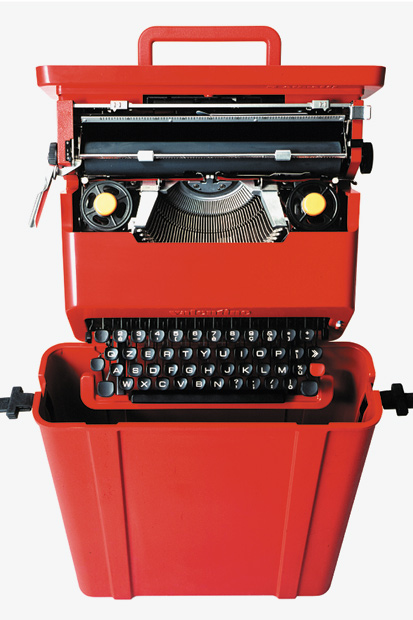Personally, I have always been sensitive about a credibility gap, a difference in prestige, between literary and visual cultures. More than 30 years ago, Frederic Raphael wrote a teasing piece in the TLS mentioning an Italian designer with a funny name, as if to disparage design as a whole. I boldly wrote in defence and, surprisingly, my letter was published. That designer was Ettore Sottsass, Jnr (1917–2007).
The ‘Jnr’ was not mere affectation, although there was a bit of that. His identically named father had also been a distinguished architect. (The curious name is Romansch, meaning ‘under the stone’). Sottsass, born in what used to be Austria before it was Trentino-Alto-Adige, became a prominent figure in Italy’s postwar ricostruzione, its industrial revolution which gave us the epochal Vespa and the Fiat Cinque-cento. First as an architect of dignified social housing, then as a designer for Olivetti, the manufacturer of typewriters and electronics which, in that attractive Italian way, was both an employer with lofty social principles and an inspired patron of the arts.
It was Sottsass who determined the appearance of the first Italian mainframe computer, Olivetti’s Elea 9003 of 1959.

Get Britain's best politics newsletters
Register to get The Spectator's insight and opinion straight to your inbox. You can then read two free articles each week.
Already a subscriber? Log in







Comments
Join the debate for just $5 for 3 months
Be part of the conversation with other Spectator readers by getting your first three months for $5.
UNLOCK ACCESS Just $5 for 3 monthsAlready a subscriber? Log in